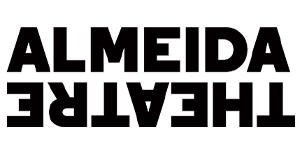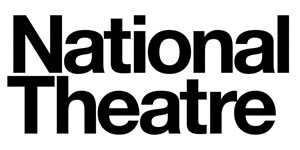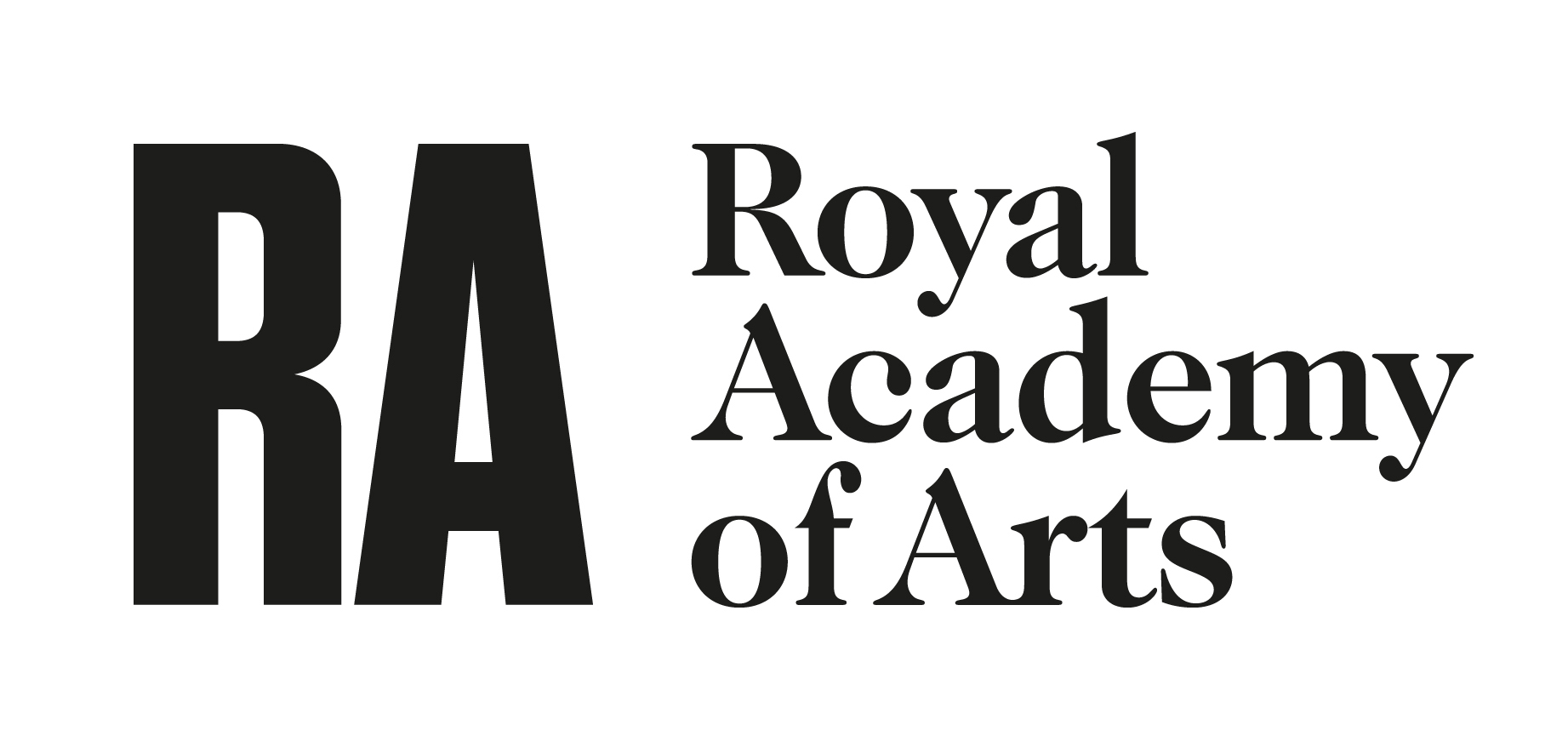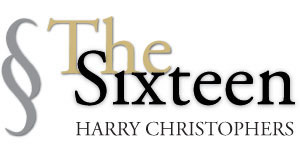Creative Industries Forum 2025
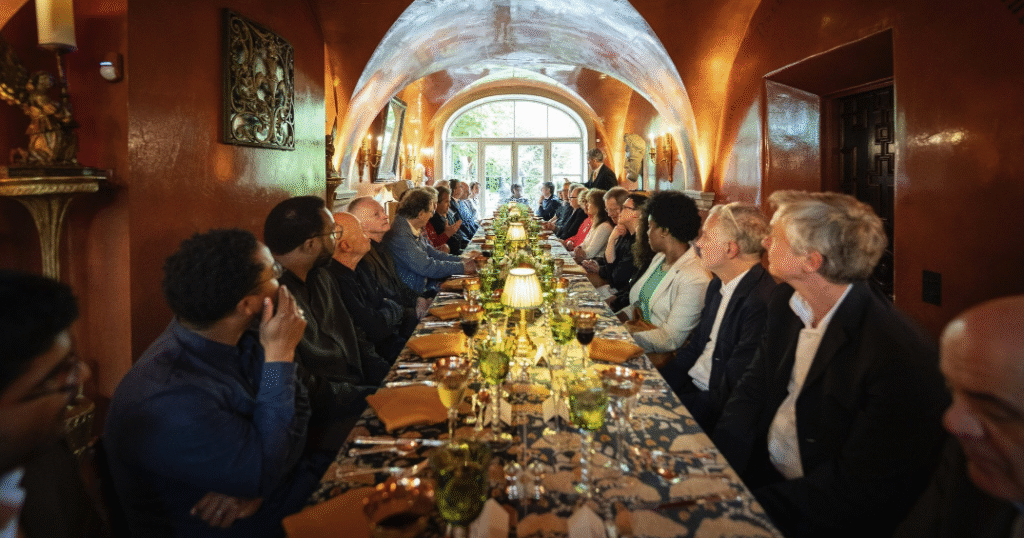
Risk as Value: Embracing Challenges & Innovation in the Arts
20 May 2025
This year’s forum took the form of a roundtable dinner, and explored how courage and adaptability are required to reshape and reinforce the arts sector amidst growing global challenges. Central themes included the importance of international collaboration and the persistent battle for funding, underscoring their vital role in sustaining innovative arts practices.
1. Trust as currency
Trust is a vital currency within cultural ecosystems, and the resilience of the cultural sector will benefit if trust is consistently built and maintained among audiences, artists, and citizens. Society is increasingly polarised, and with the rise of artificial intelligence and increasing public mistrust of the media and organisations, it has become more vital than ever to foster environments that welcome diverse perspectives and debate. Senior figures in creative organisations have a responsibility to accommodate disagreement and dissonance with the aim of achieving understanding and a constructive outcome.

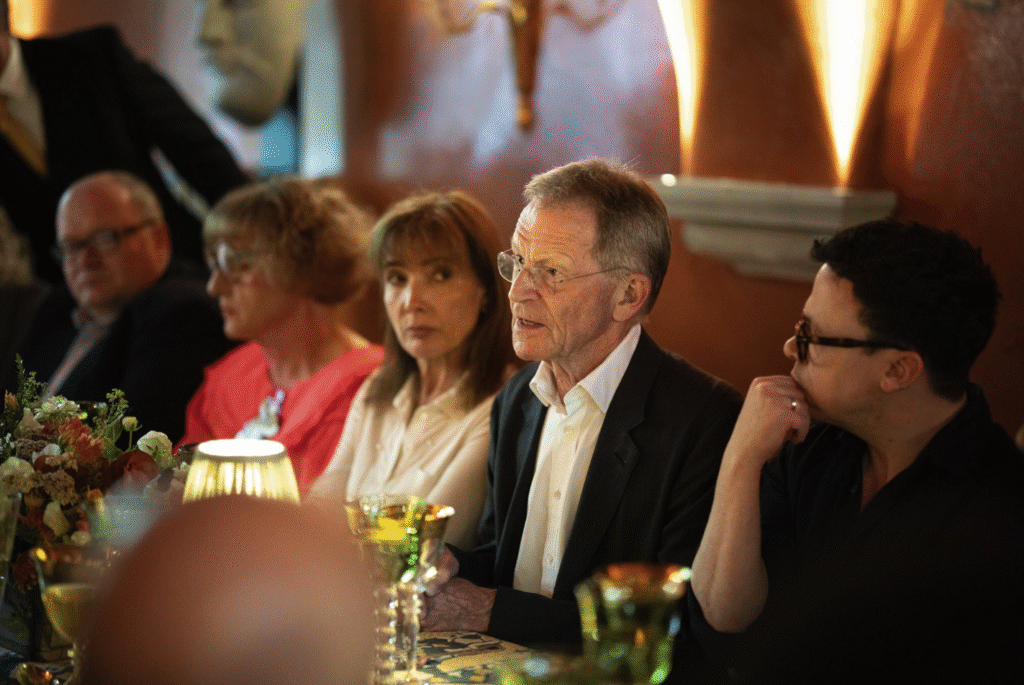
2. The role of the artist in framing and defining society
Artists have a role to play in preparing society for upcoming societal shifts, and it is important to engage audiences meaningfully in an era of rapid change. These principles are in keeping with the Genesis Foundation’s ethos of supporting and nurturing artists who are creating the cultural memory of tomorrow. If artistic vitality is to be encouraged, and if artists are to tell society’s big stories, there is a need for spaces where wildness and unruliness are permitted.
3. Arts education: class, curriculum and career paths
The arts are an essential component of a young person’s development from an early age and should be considered a fundamental constituent of a “good education”. People who choose to become creative professionals should be aided in mapping out and pursuing a sustainable career, with an eye to both financial stability and emotional resilience.

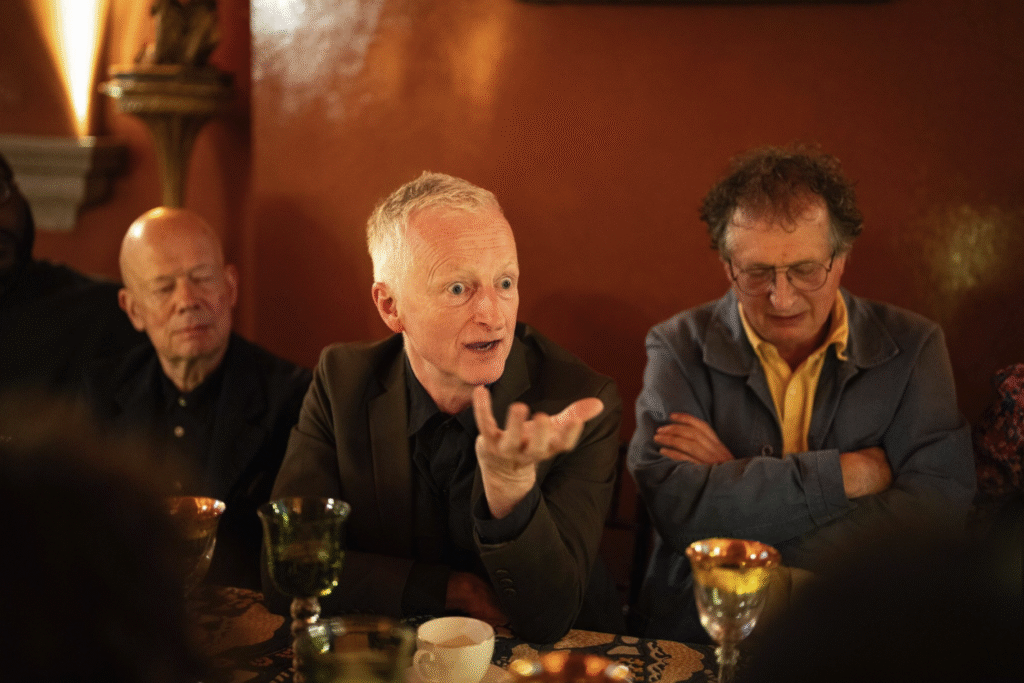
4. Are the arts really part of the creative industries?
Do the arts occupy a place in the creative industries/creative sector, or should they, and their societal impact, be considered and assessed according to entirely different criteria? Currently, under the DCMS remit, the arts are positioned alongside media and sport. Does this structure create a false narrative that undermines the cultural sector, with its distinct needs and capacities, when it comes to both recognition and investment?
5. Beyond the scarcity mindset: building a resilient arts policy
There is a need to move away from a ‘scarcity mentality’ and to take a braver, more expansive approach that promotes sector resilience, confronts class divides (particularly in classical music), and fully recognises British artistic output as an asset in ‘soft power’, international relations and foreign policy. There is an opportunity to adopt pragmatic revenue-generating solutions for the cultural sector, such as levy systems or city charges for international visitors.
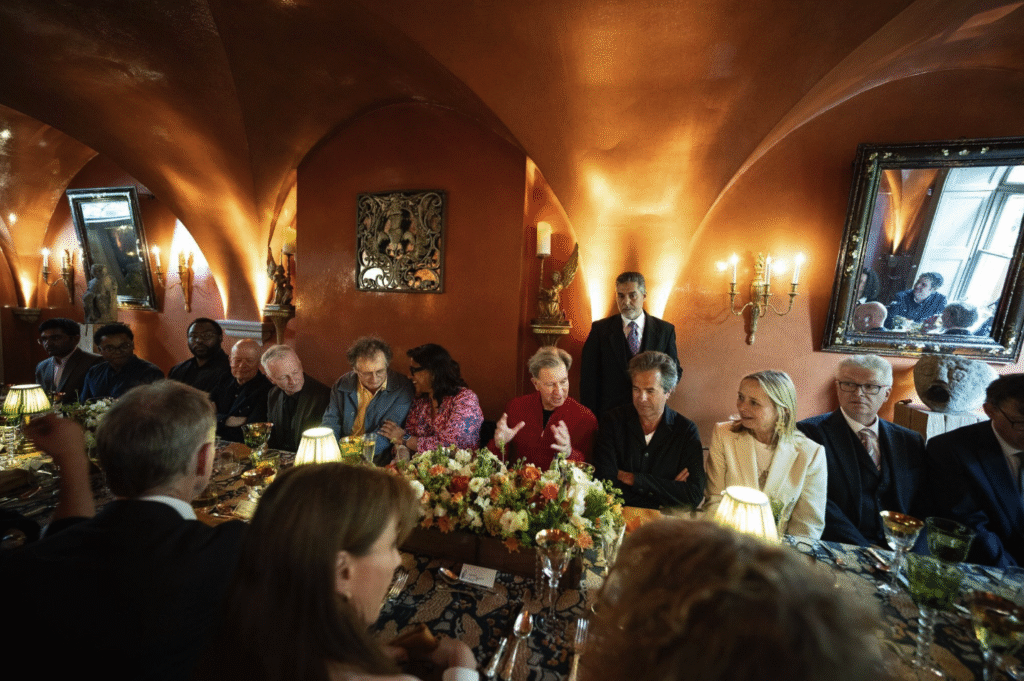

6. Corporate social responsibility and sponsorship ethics
As they seek and accept corporate sponsorship, cultural leaders are faced with constantly evolving challenges, particularly when it comes to the ethics of funding. For instance, artists or collaborators will sometimes refuse to cooperate if they deem sources of funding to be unethical. Cultural leaders should place a still stronger emphasis on transparency and unified collective action to ensure that sponsorship serves the public good while adhering to agreed ethical standards. The group was reminded that Mother Teresa of Calcutta was ready to take whatever money she received, even possibly from unethical sources, if it could be used to good charitable ends.
7. From anger to anxiety: leadership and sector challenges
In an exceptionally challenging environment, cultural leaders might find their frustration and anger turning into concern and anxiety. This should not prevent them from uniting to hold the government accountable for any lack of vision and ambition in its plans for the cultural sector and education. There is a need for sustained, cohesive and unified advocacy and lobbying (taking an example from freelance professionals who achieved results as a lobbying group). Leaders must adopt a resilient stance if they are to navigate the sector through turbulent times.


